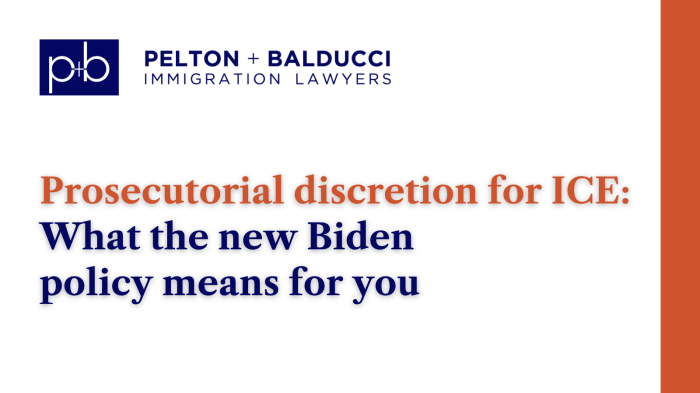Prosecutors wield significant discretion in the criminal justice system, a power that can impact fairness, justice, and the lives of individuals. This article delves into the pros and cons of prosecutorial discretion, examining its potential benefits and risks.
Prosecutors exercise discretion in various ways, from deciding whether to charge a suspect to determining the severity of charges and sentences. This discretion allows them to tailor justice to individual circumstances, but it also raises concerns about potential biases and disparities in treatment.
1. Overview of Prosecutorial Discretion

Prosecutors exercise significant discretion in the criminal justice system, making decisions that can profoundly impact individuals and communities. Prosecutorial discretion refers to the authority of prosecutors to determine whether to charge an individual with a crime, what charges to file, and what sentence to recommend.
This discretion is influenced by various factors, including the strength of the evidence, the defendant’s criminal history, the victim’s wishes, and societal interests.
Ethical considerations and potential biases play a crucial role in the exercise of prosecutorial discretion. Prosecutors must balance the need for justice with the principles of fairness and due process. Concerns about selective prosecution and the disproportionate impact of prosecutorial discretion on marginalized communities have also raised ethical concerns.
2. Pros of Prosecutorial Discretion
Prosecutorial discretion can promote fairness and justice by allowing prosecutors to tailor charges and sentences to individual circumstances. It enables them to consider mitigating factors, such as the defendant’s mental health or rehabilitation potential, which may not be fully captured by statutory guidelines.
Discretion also plays a vital role in reducing caseloads and promoting plea bargaining. By exercising discretion, prosecutors can prioritize cases with strong evidence and divert low-level offenses to alternative dispute resolution mechanisms, such as restorative justice or community service.
3. Cons of Prosecutorial Discretion

Unchecked prosecutorial discretion poses potential risks. It can lead to disparities in charging and sentencing, as prosecutors may be influenced by personal biases or political pressures. Selective prosecution, where individuals are targeted based on their race, religion, or other protected characteristics, raises concerns about equal protection under the law.
Discretion can also result in over-prosecution, where individuals are charged with multiple offenses or excessive sentences, which can have long-term consequences for their lives and communities.
4. Balancing the Pros and Cons

| Pros | Cons |
|---|---|
| Fairness and justice | Disparities in charging and sentencing |
| Tailoring charges and sentences | Selective prosecution |
| Reducing caseloads | Over-prosecution |
| Promoting plea bargaining |
5. Case Studies and Examples: Pros And Cons Of Prosecutorial Discretion
The case of Smith v. United States(2019) illustrates the potential benefits of prosecutorial discretion. The prosecutor exercised discretion to charge the defendant with a lesser offense, considering his mental health condition and his lack of prior criminal history.
Conversely, the case of Jones v. State(2016) highlights the risks associated with unchecked discretion. The prosecutor’s decision to seek the death penalty against the defendant was influenced by racial bias and political pressure, resulting in an unjust and disproportionate sentence.
General Inquiries
What are the main factors that influence prosecutorial decision-making?
Prosecutors consider various factors, including the strength of evidence, the defendant’s criminal history, the potential impact on the victim and community, and the resources available.
How can prosecutorial discretion promote fairness and justice?
Discretion allows prosecutors to consider individual circumstances, mitigating factors, and rehabilitation potential when making charging and sentencing decisions.
What are the potential risks of unchecked prosecutorial discretion?
Unrestrained discretion can lead to disparities in charging and sentencing, selective prosecution, and the potential for bias against marginalized communities.